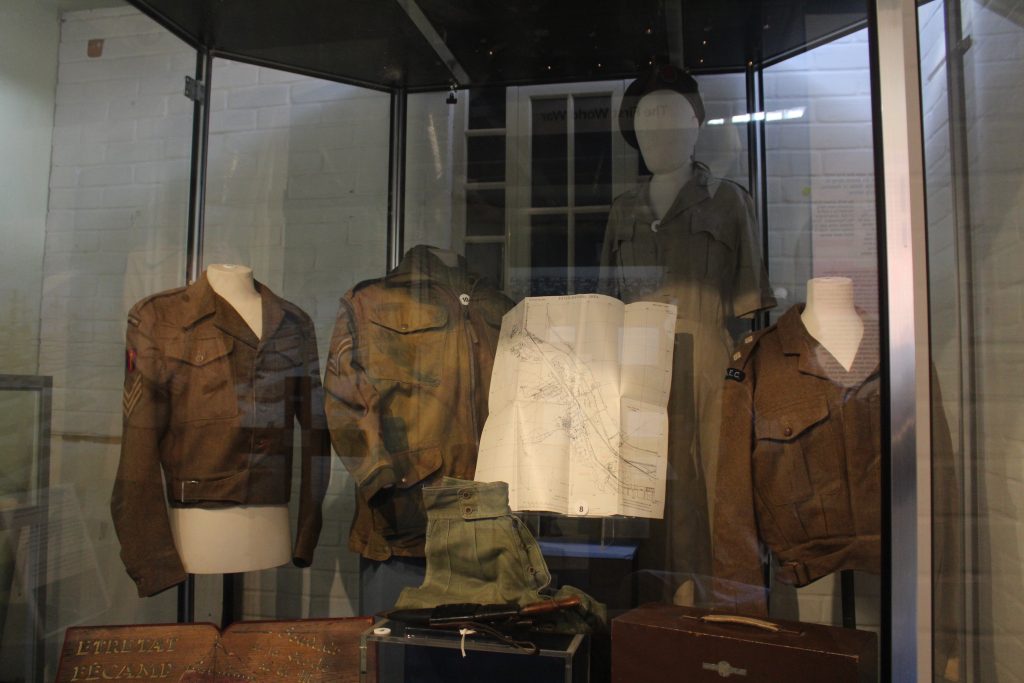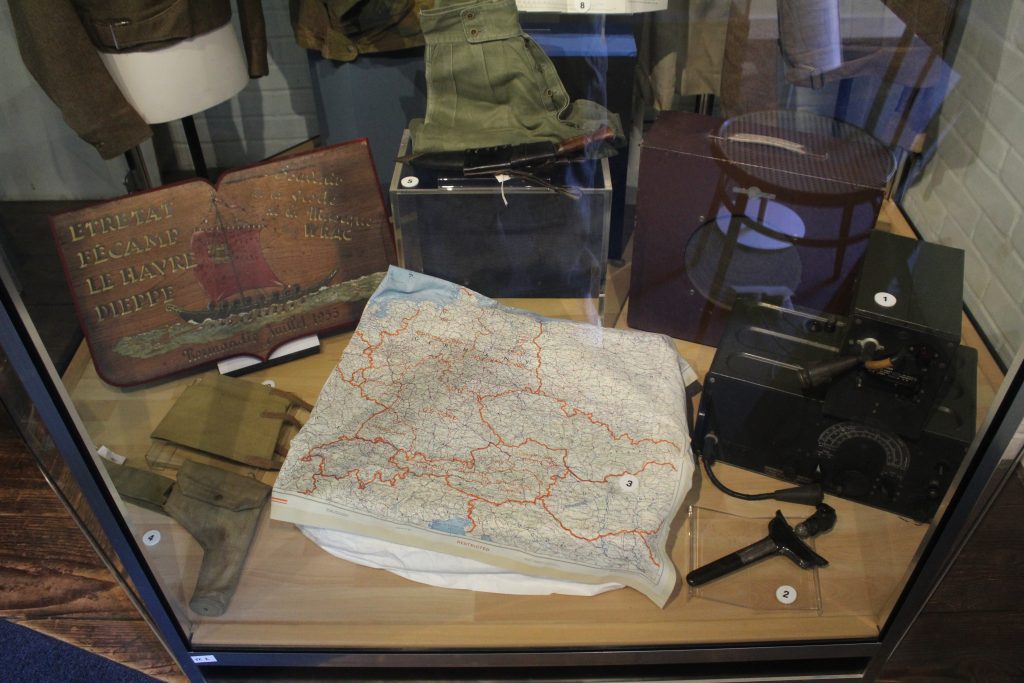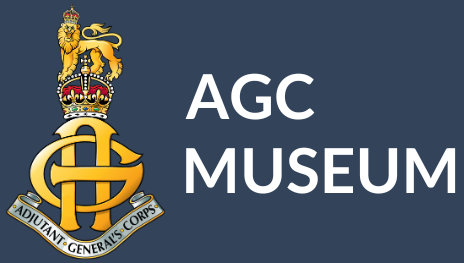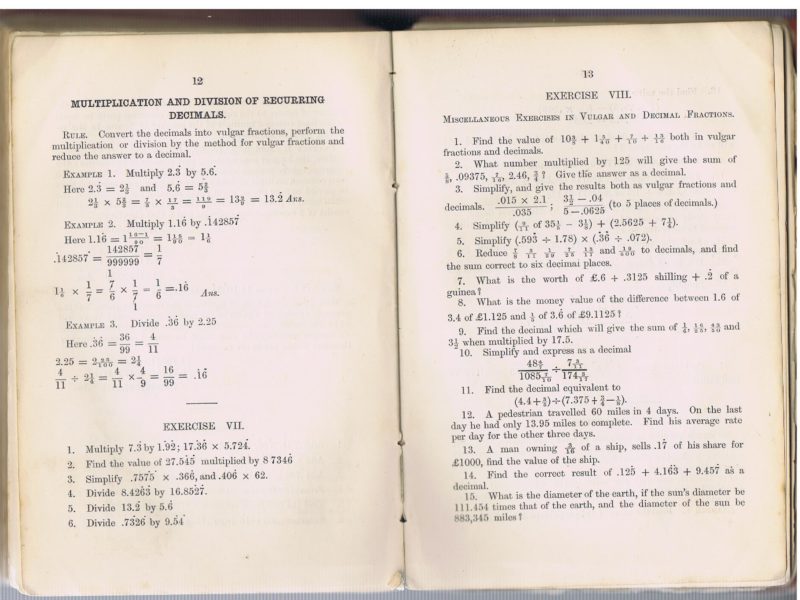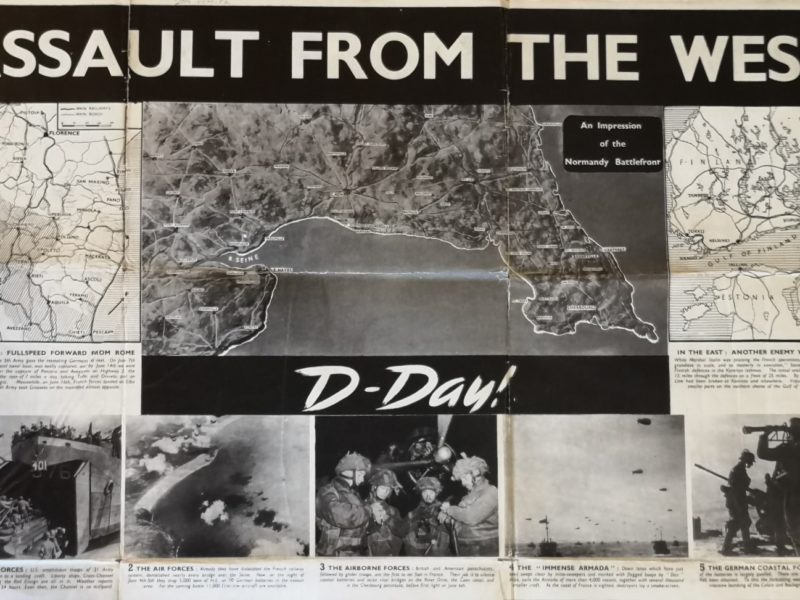The Post War Army 1945-1960
Most of the histories talk about the Second World War as the last war fought by the British before the Falklands War in 1982; however, this forgets conflicts fought by the British Army who fought around the world as part of the Cold War. This exhibition looks at how the antecedents of the AGC contributed and changed as part of a new world.
Royal Army Pay Corps (RAPC)
In January 1945 the Army and Commanders wanted more work from fewer staff, so the Pay Services were re-examined. The RAPC’s role was to advise Headquarters, Formations, and Units of the Regular and Territorial Armies on matters of pay, allowances, cash accounting, currency, banking, rates of exchange and exchange of control matters. By 1954 there were 600 sergeants attached to units. The first examination of the use of computers in Army pay was in 1955. The system, the IBM 705, was brought in to use in 1960, in the UK’s first purpose-built computer centre at Worthy Down, the new home of the RAPC.
Military Provost Staff Corps (MPSC)
The MPSC continued their work in the detention and rehabilitation of soldiers sentenced to more than twenty-eight days detention in the UK and abroad. Overseas, they worked with Displaced Persons and Prisoners of War.
Army Educational Corps (AEC)/Royal Army Educational Corps (RAEC)
The AEC began work on the Period Release Scheme in the immediate post war period. Hower the war ended sooner than expected so there wasn’t enough instructors or material. On 28th November 1946 the AEC was granted the title ‘Royal’ for its work during the Second World War. Preliminary education was very important in the post war period because literacy rates fell due to being disrupted by war. General education for recruits was compulsory, with exemptions made for anyone who had reached the standard of the Forces Preliminary Education examination.
Army Legal Service (ALS)
Following the end of hostilities, many offices of the Military Department of the Judge Advocate General, the Army’s lawyers, closed. However, their workload now extended with the search for those who had committed war crimes. The large number of cases led to the formation of the War Crimes Group. This group was tasked with the investigation of, advice on, and prosecution at those trials.
Auxiliary Territorial Service (ATS) and Women’s Royal Army Corps (WRAC)
Within six weeks of VE Day, demobilisation began for the women of the Auxiliary Territorial Service (ATS). However, there were women who wished to remain in the Army, and the Army intended to retain a proportion of the women with the hope that the Corps would become a permanent force. The first priority was to bring the women completely under the Army Act and Army List. The rank system was the second priority. As ATS officers had a different rank system, it was not understood and, in some cases, used as a way for men to pretend to not recognise a woman’s authority, even down to not saluting them. The third priority was the uniform. The wartime ATS uniform was based on men’s battledress. It was not popular and was thought to have damaged the ATS’s ability to attract volunteers. The WRAC served in forty different trades, in support roles in the UK and abroad, serving in every area of operation from 1949. The women were not allowed near the front lines; however, they faced the same dangers as their male counterparts in the various emergencies across the world.
British Army of the Rhine
The British Army of the Rhine was the army of occupation in post-war Germany. There was an agreement between the Allied forces to occupy Germany post-war to make certain that another fascist regime would not take power, and to minimise the likelihood of another world war
Indian Independence and Partition
In India the months leading up to Indian Independence and Partition were difficult ones, with a mutiny by some India military units and inter-communal strife. Patrols of CMP were organised in Quetta on Independence Day. By midnight the Bazaar area was on fire and civilian casualties were mounting. The unit patrolling also had to control the groups of Hindus and Sikhs attempting to leave by rail from the newly formed Pakistan.
Palestine
In the immediate post-war period, the creation of the state of Israel caused tensions between the Jewish Palestinians and the Arab Palestinians. Britain had the Mandate from the United Nations to keep the peace; however, attacks by both Jewish and Palestinian groups led to the withdrawal of British troops in May 1948.
The Malayan Emergency
The Malayan Emergency began in June 1948, lasting until 1960. The Emergency involved British, Commonwealth and Malayan military fighting against communist insurgents.
The Kenya Emergency
The Kenya Emergency took place between 1952 and 1960 and is also called the Mau-Mau revolt. It was a guerilla campaign by members of the Kikuyu tribe against European settlers and other Africans and was about land ownership and the control of Kenya once the British withdrew. Although poorly armed, it took four years of counterinsurgency work to defeat them.
The Suez Crisis
Before the mid‑1950s, Egypt was under British control, with Britain garrisoned in the Suez Canal Zone until 1956. In July 1956, President Nasser nationalised the Suez Canal Company to fund industrialisation. After funding from Britain and the U.S. was refused, fears mounted that Egypt might block Western oil. Britain, France, and Israel launched the an operation: Israeli forces invaded on 29 October, followed by British and French troops landing at Port Said in November. Intense international and U.S. pressure ended the campaign by December, with Israeli withdrawal in March 1957, diminishing British and French power in the Middle East.
The Cyprus Emergency
In the 1950s, Greek Cypriots demanded union with Greece, but Britain, administering Cyprus, refused due to strategic interests. In response, Colonel George Grivas launched a guerrilla campaign with EOKA to expel the British. Riots and attacks in 1955 led Governor Sir John Harding to declare an emergency. Despite military-police coordination, operations faltered due to limited intelligence. The Suez Crisis weakened efforts, allowing the EOKA to expand. Afterward, reinforcements arrived; EOKA leaders were killed, and Grivas fled. A 1960 compromise made Cyprus independent, with Britain retaining bases. The RMP played key roles in security, suffering ten deaths. MPSC oversaw detention operations during unrest.
